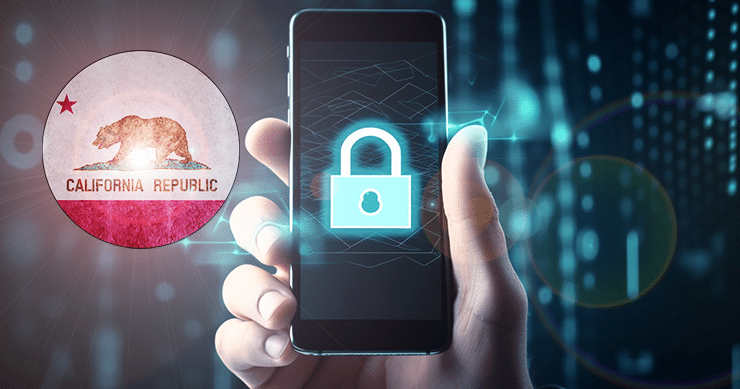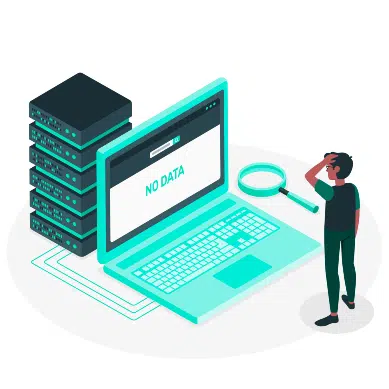The California Consumer Privacy Act (CCPA) was introduced to empower individuals with greater control over their personal information and hold businesses accountable for data handling practices. For organizations operating in California or handling California residents’ data, compliance with CCPA is not only essential but also crucial for maintaining trust and avoiding hefty penalties.

Did the CPRA Replace the CCPA?
The CPRA will take the place of the CCPA once its full enforcement kicks off on July 1st, 2023.
How Does the CPRA Compare to the CCPA?
The California Privacy Rights Act (CPRA) can be described as a more comprehensive version of the CCPA, reworking the stipulations of the CCPA content to reflect popular consumer and public demand for increased rights of California consumers.
According to the CPRA, businesses that collect or use the personal information of state residents must allow individuals to exercise even more rights to privacy than stipulated in the CCPA. The rights covered in the new law include the right to request that a business disclose personal information it has collected about the individual, the right to request that their personal information is deleted, and the right to opt not to sell their data. Additionally, the CPRA introduces new disclosure requirements and other notable amendments to the CCPA.
Although the CCPA is going the way of extinction, companies that have reached CCPA compliance have the core of the framework of the CPRA up and running already. The CPRA is an expansion of the CCPA that introduces some new and significant changes. Many of these amendments were inspired by the EU’s General Data Protection Regulation (GDPR).
Read on as we delve into the nitty gritty points of how to comply with the CCPA. We’ll provide you with a comprehensive understanding of their obligations and actionable steps to ensure compliance.
CCPA Compliance Requirements Checklist
Data Collection and Disclosure
CCPA places significant emphasis on transparency regarding data collection and how businesses disclose their practices to consumers. To comply with CCPA requirements, businesses must:
- Inform consumers about the categories of personal information collected and the specific purposes for which it will be used.
- Provide notice at or before the point of collection, ensuring individuals are aware of their rights under CCPA.
- Obtain explicit consent from consumers, especially for selling their personal information to third parties.
- Maintain a publicly accessible privacy policy outlining data collection, usage, disclosure practices, and consumer rights.
Consumer Rights
CCPA grants several rights to consumers, empowering them to control their personal information. Businesses must be prepared to facilitate these rights, which include:
- The right to know what personal information is being collected, sold, or disclosed.
- The right to access their personal information and obtain copies upon request.
- The right to request deletion of their personal information.
- The right to opt out of the sale of personal information.
- The right to non-discrimination for exercising their CCPA rights.
Data Security and Protection
Under CCPA, compliance requirements for businesses require them to implement reasonable security measures to safeguard consumers’ personal information. Key considerations include:
- Conducting regular risk assessments and vulnerability testing to identify and address potential security risks.
- Implementing appropriate technical and organizational measures to protect personal information against unauthorized access, disclosure, or alteration.
- Establishing incident response protocols to promptly address any data breaches or security incidents.
Start Getting Value With
Centraleyes for Free
See for yourself how the Centraleyes platform exceeds anything an old GRC
system does and eliminates the need for manual processes and spreadsheets
to give you immediate value and run a full risk assessment in less than 30 days
Handling Consumer Requests
CCPA mandates that businesses establish processes to handle consumer requests and ensure prompt responses. Key aspects include:
- Implementing mechanisms for consumers to submit data access, deletion, and opt-out requests.
- Maintaining internal systems to verify consumer identities before fulfilling their requests.
- Responding to consumer requests within the stipulated timeframe (45 days under CCPA).
Compliance Monitoring and Employee Training
To ensure ongoing compliance with CCPA, businesses should consider the following:
- Conducting regular audits and assessments to monitor compliance efforts and identify areas for improvement.
- Providing comprehensive training programs to employees on CCPA requirements, consumer rights, and data handling practices.
- Appointing a designated person or team responsible for overseeing CCPA compliance within the organization.
Actionable Steps To Ensure CCPA Compliance
- Educate Yourself
Familiarize yourself with the requirements and provisions of the CCPA. Understand the definitions, obligations, and consumer rights outlined in the law. Stay updated with any amendments or changes to ensure ongoing compliance.
- Conduct a Data Audit
To comply with CCPA audit requirements, conduct a comprehensive audit of the personal information your business collects, stores, and processes. Identify the categories of personal data, sources of collection, and purposes of use. This will help you understand the scope of your data handling practices and assess compliance gaps.
- Update Privacy Policies
Review and update your privacy policies to align with CCPA requirements. Ensure that your policies clearly state what personal information is collected, how it is used, and the rights afforded to consumers. Include procedures for submitting data access, deletion, and opt-out requests.
- Implement Consumer Rights Processes
Establish processes and mechanisms to handle consumer requests effectively. Develop systems to verify consumer identities, respond to data access and deletion requests within the mandated timeframe, and honor opt-out preferences for the sale of personal information.
- Enhance Data Security Measures
Implement robust security measures to protect personal information from unauthorized access, disclosure, and breaches. Conduct regular risk assessments, adopt encryption and data protection technologies, and establish incident response protocols to address security incidents promptly.
- Review Vendor Agreements
Assess your relationships with third-party vendors and service providers who handle personal information on your behalf. Ensure that their practices align with CCPA requirements and consider updating vendor agreements to include specific data protection provisions and responsibilities.
- Train Employees
Educate your employees about CCPA requirements, consumer rights, and the importance of data privacy and security. Provide training programs to enhance their understanding of data handling practices, incident reporting procedures, and the proper handling of consumer requests.
- Document Compliance Efforts
Maintain detailed records of your compliance efforts, including policies, procedures, employee training records, and consumer requests. These records can serve as evidence of your commitment to compliance in the event of an audit or regulatory inquiry.
- Stay Informed
Stay up to date with the latest developments, guidelines, and enforcement actions related to CCPA. Monitor any changes to the law and adjust your compliance efforts accordingly.
- Seek Legal Counsel
Consider consulting with legal professionals who specialize in data privacy and compliance. They can provide valuable guidance, help interpret CCPA requirements for your specific business, and ensure you are taking the necessary steps to achieve compliance.
Navigating the complexities of CCPA compliance can be a daunting task, but you don’t need to go it alone. By understanding the core requirements outlined in this blog, organizations can lay the foundation for CCPA compliance and foster a privacy-centric culture. Remember, compliance is not a one-time event but an ongoing commitment to protecting consumer rights and building trust. Embrace the principles of transparency, accountability, and data security to ensure your business meets CCPA’s rigorous compliance standards and paves the way for a privacy-strong future.
Start Getting Value With
Centraleyes for Free
See for yourself how the Centraleyes platform exceeds anything an old GRC
system does and eliminates the need for manual processes and spreadsheets
to give you immediate value and run a full risk assessment in less than 30 days






